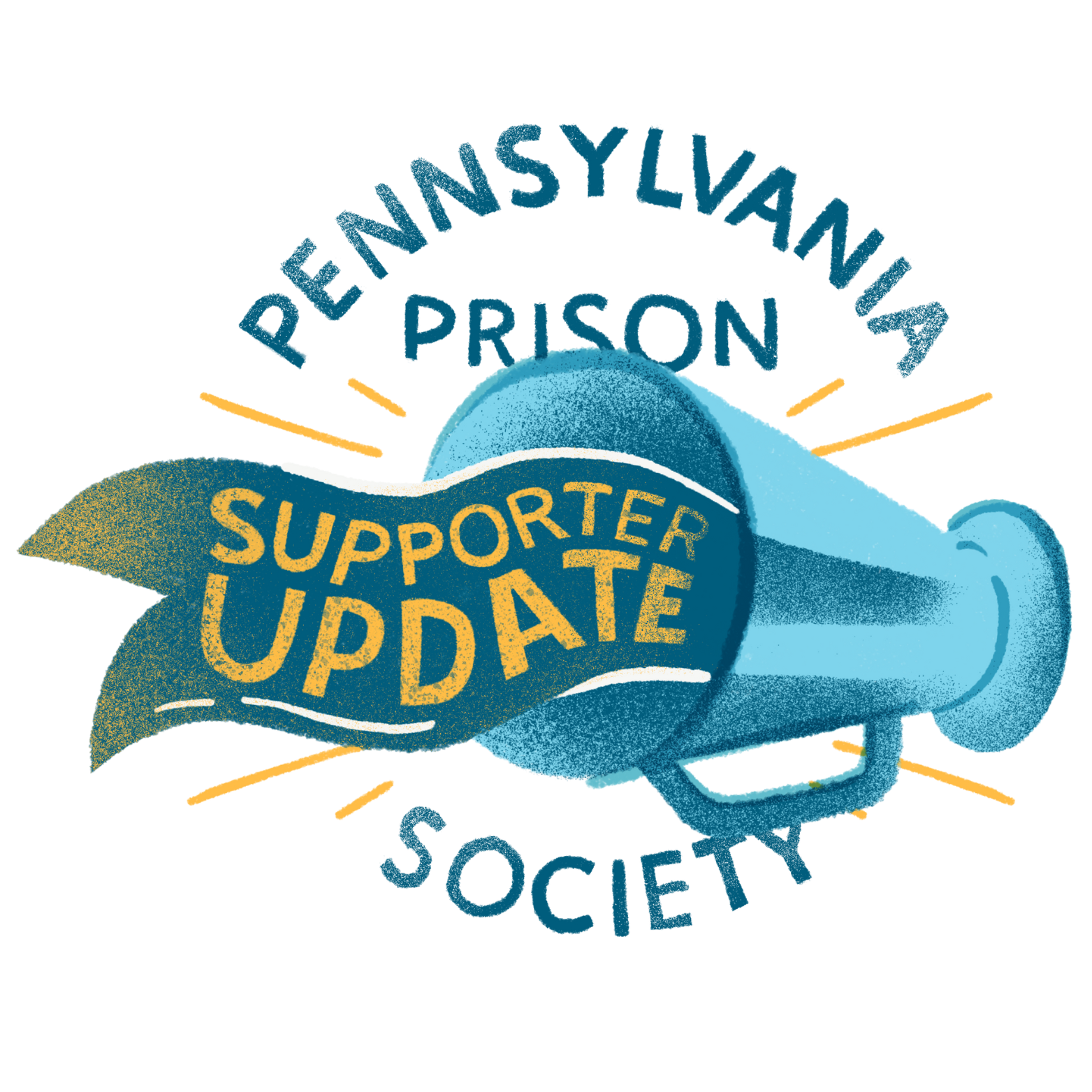This spring, our prison monitoring team — joined by city councilmembers Kendra Brooks and Rue Landau — returned to Philadelphia’s largest jail, Curran-Fromhold Correctional Facility (CFCF), and found signs of real progress, including expanded access to phone calls, showers, and out-of-cell time.
But serious problems remain. Many people inside still report inadequate food, unsanitary conditions, and long waits for medical and mental health care.
As Pennsylvania’s independent prison monitor, the Prison Society regularly visits jails and prisons across the state to assess conditions and advocate for the humane treatment of people in custody. This April marked our fourth walk-through of CFCF since 2021. Our resulting report is our most data-driven yet, featuring year-over-year comparisons that show where progress is being made and where serious problems persist.
Our walk-through included structured interviews with 57 incarcerated men in general population and restricted housing units.
Encouraging Improvements
We found improvement across several key areas since our last visit in August 2023.
We asked 45 men if they were allowed out of their cell every day in the last week. Of the 45 men we asked, 32 (57%) said they were not. While troubling, this is an improvement from our last walk-through of CFCF, when 71% of men we interviewed said they had gone days without being allowed out.
We also saw progress around shower access. Previously, 47% of people said they weren’t able to shower at least three times per week. These improvements are a result of stronger staffing, lower housing density, and a clear effort by the PDP to address long-standing concerns.
Where There’s Still Work To Do
While we're encouraged by positive progress in some areas, CFCF remains deeply troubled and, in many respects, fundamentally inhumane.
The vast majority of men we spoke to are still locked in their cells for most of the day without meaningful activities or basic hygiene needs being met. Nearly every person we interviewed (96%) reported regularly seeing mice and/or cockroaches in their housing units. Over half said they lacked reliable access to toilet paper or soap.
Getting medical care is too slow. Two-thirds of people who requested medical attention said they waited more than a week for a response. One man told us, “Medical is horrible. You'll be dead before they contact you.”
Food remains a serious concern. Several people reported being served undercooked meals, and 86% of those interviewed said they don't receive enough to eat.
Safety remains an issue. Nearly half of interviewees said they don't feel safe at CFCF, and 64% said they had witnessed staff-on-resident assaults.
A Moment of Progress — And a Call for Accountability
This walkthrough offers a snapshot of a system in transition. Conditions at CFCF are better than they were — but they are still far from where they should be. Sustained improvement will require ongoing leadership, investment, and oversight.
That’s why we’re especially heartened by the recent passage of legislation to create a Prison Oversight Board and Office of Prison Oversight that will have the power to investigate, access records, and hold public meetings.
These reforms come at a pivotal moment: Philadelphia has achieved a 33-year low in its incarcerated population, and the Department of Prisons just graduated its largest cadet class in decades — critical progress toward closing long-standing staffing gaps.
We will return to the prisons on State Road this August to continue monitoring conditions. In the meantime, read our full walk-through report including detailed comparison charts HERE.
About Our Walk-through Methodology
Our prison walk-throughs offer a unique window into life behind bars. These walk-throughs last 3-4 hours and focus on anonymous, structured interviews that cover a wide range of prison issues.
Thanks to our legally-authorized access and trusted presence in jails, we are able to gather candid insights. People speak openly with us — because they know we’re here to help.
We aggregate responses — never identifying individuals — to encourage honesty and to protect participants' privacy and safety. While not exhaustive, the feedback from dozens of incarcerated people across multiple units who do not have regular contact with one another paints a picture of what’s working and where change is needed. The feedback helps identify patterns so that we can advocate for improvements in health, safety, and dignity.

